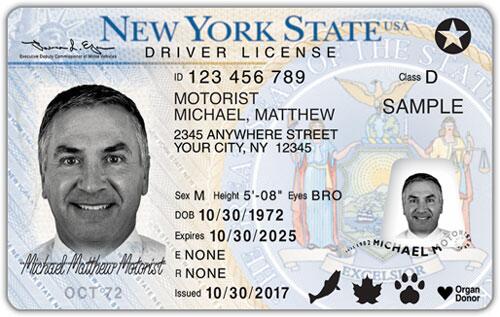Accessing medical care is a crucial aspect of maintaining one’s health and well-being. However, the requirement of presenting a photo ID at healthcare facilities can be a concern for some individuals. This article aims to address the common question: “Can you see a doctor without a photo ID?” We’ll delve into the importance of identification in healthcare, situations where photo ID is typically required, and explore options available for individuals without proper identification.
Understanding the Importance of Identification in Healthcare
In the healthcare sector, patient identification plays a vital role in ensuring accurate treatment, maintaining medical records, and safeguarding patient privacy. Photo IDs, such as driver’s licenses or government-issued identification cards, are commonly used to verify a patient’s identity during the registration process. This verification step is critical for preventing medical errors, confirming insurance coverage, and ensuring that the right medical history is associated with the correct patient.
However, there are instances where individuals might not possess a valid photo ID. This could be due to reasons such as loss or theft of the ID, recent relocation, or being part of marginalized communities that face challenges in obtaining proper identification.
Situations Where Photo ID Is Typically Required
Photo ID is commonly required in various situations within healthcare settings. During the initial registration process, patients are often asked to present a photo ID to verify their identity and confirm their details. Additionally, photo IDs may be necessary for insurance verification, prescription pick-up, and accessing specific medical services. These practices are in place to ensure patient safety, prevent identity theft, and maintain accurate medical records.
While these requirements are in place for valid reasons, it’s important to recognize that there are individuals who may not have access to a photo ID. For example, homeless individuals, undocumented immigrants, and those facing financial constraints might encounter challenges in meeting this requirement.

Challenges Faced by Individuals Without Photo ID
For individuals without a photo ID, accessing medical care can pose significant challenges. The absence of proper identification might lead to delays in treatment, misunderstanding of medical history, and difficulties in receiving prescribed medications. Moreover, the requirement of a photo ID can deter some individuals from seeking medical attention altogether, potentially compromising their health.
It’s crucial to acknowledge that barriers to accessing medical care due to lack of identification can have wide-ranging implications on public health. Vulnerable populations, including those without stable housing or legal documentation, are particularly affected by these challenges.
Options for Seeing a Doctor Without a Photo ID
While the requirement of a photo ID is common, it’s important to know that there are options available for individuals who lack proper identification. Many healthcare facilities understand the diverse circumstances patients may face and strive to provide accessible care. Community clinics, free clinics, and certain nonprofit healthcare organizations often offer medical services to individuals without strict photo ID requirements. These facilities prioritize providing care to underserved populations and are equipped to verify patient identity through alternative means.
Document Alternatives for Identification
For those without a photo ID, alternative documents can often serve as a means of identification. While these documents might not be photo IDs, they can still help healthcare providers verify a patient’s identity. Examples include health insurance cards, social security cards, birth certificates, utility bills with the patient’s name and address, or official correspondence from government agencies.
Verifying Identity Through Other Means
Healthcare facilities understand that some individuals may not have a photo ID but still require medical attention. In such cases, healthcare providers may use other methods to verify a patient’s identity. This could involve asking security questions, confirming personal details, or using secondary identification documents. The goal is to ensure accurate patient records and provide the necessary care while respecting patients’ circumstances.
Policies and Practices of Healthcare Facilities
The policies regarding identification requirements can vary among healthcare facilities. Some institutions may be more flexible in accommodating patients without photo ID, while others may have stringent policies in place. It’s advisable to inquire about identification policies when scheduling appointments or seeking medical care. Understanding the practices of a specific healthcare facility can help individuals make informed decisions about seeking care without proper identification.
Legal and Ethical Considerations
Balancing identification requirements with the necessity of providing medical care raises legal and ethical considerations. Healthcare providers must prioritize patient well-being and ensure non-discriminatory access to care. Legal regulations and ethical guidelines guide healthcare facilities in making decisions that uphold patient rights and maintain high standards of care, even in cases where photo ID might not be available.
Preparing for the Appointment Without a Photo ID
If you’re facing a medical appointment without a photo ID, there are steps you can take to ensure a smooth experience. Bring any alternative documents you have that can help verify your identity. Arrive early to allow time for any verification processes that might be needed. Communicate with the healthcare facility in advance to understand their identification requirements and discuss any challenges you might encounter.
Accessible Medical Care for All
The question of whether you can see a doctor without a photo ID underscores the importance of accessible healthcare for all individuals, regardless of their identification status. While the requirement of a photo ID serves valid purposes, it’s heartening to know that options and alternatives exist to ensure that everyone can receive necessary medical care. By understanding these options, advocating for patient rights, and fostering inclusivity, we can work toward a healthcare system that truly serves the diverse needs of our communities.
Frequently Asked Questions About Seeing a Doctor Without Photo ID
1. Can I visit a doctor if I don’t have a photo ID?
Yes, there are options available for individuals without a photo ID to access medical care.
2. Why do healthcare facilities require a photo ID?
Photo IDs help verify patient identity, prevent medical errors, and ensure accurate medical records.
3. What if I lost my photo ID and need medical attention?
You can still seek medical care by using alternative identification documents or methods of verification.
4. Can homeless individuals receive medical care without a photo ID?
Yes, many healthcare facilities offer services to homeless individuals without strict photo ID requirements.
5. What are some alternative documents I can use as identification?
Alternative documents include health insurance cards, social security cards, birth certificates, and utility bills.
6. Can I use a utility bill as proof of identity at a doctor’s office?
Some healthcare facilities may accept utility bills with your name and address as a form of identification.
7. How can I prove my identity if I’m an undocumented immigrant?
Healthcare providers may have processes in place to verify your identity using alternative methods.
8. Do I need to provide a photo ID to receive prescriptions?
Some pharmacies may require photo ID for prescription pick-up, but alternatives can be discussed with your healthcare provider.
9. Are there clinics that specialize in treating individuals without photo ID?
Yes, community clinics and nonprofit healthcare organizations often prioritize providing care to underserved populations.
10. Can I use a birth certificate as ID to see a doctor?
Yes, a birth certificate can serve as a valid form of identification to verify your identity at healthcare facilities.
11. What should I do if a healthcare facility insists on a photo ID?
It’s advisable to communicate with the facility and inquire about their alternatives for verification.
12. Are there laws that require me to have a photo ID to see a doctor?
No, there are no federal laws mandating photo ID for medical care, but requirements can vary by facility.
13. Can I bring someone to vouch for my identity at a doctor’s appointment?
Some healthcare facilities may allow a trusted person to verify your identity, but policies vary.
14. Will I receive the same quality of care without a photo ID?
Healthcare providers strive to offer quality care regardless of identification status.
15. Can I use a student ID card as proof of identity at a clinic?
Some clinics may accept student ID cards, but it’s best to inquire about their specific policies.
16. What if I need urgent medical attention but don’t have an ID?
Healthcare providers prioritize urgent care and will work with you to ensure you receive the necessary treatment.
17. Are there limitations on medical services I can access without an ID?
Some non-urgent services might require verification, but emergency care is typically provided without delay.
18. Can I bring a family member to verify my identity at the doctor’s office?
Some facilities may allow a family member to assist in verification, but policies can vary.
19. How can I find healthcare facilities that accommodate patients without IDs?
Research community clinics, nonprofit organizations, and facilities that prioritize accessibility for all patients.
20. Is it better to communicate with the doctor’s office before my appointment?
Yes, informing the office about your identification situation can help them prepare alternative verification methods.




